Features and types of woodwind instruments
There are various types of woodwind instruments ranging in shape, material and size. What is common is that sound is produced by vibration of something other than lips. Recorders that most people have played in elementary and junior high school are also members of woodwind instruments. Another characteristic different from brass instruments is that they change the pitch by closing holes. Originally like a recorder, a hole called sound hole was directly closed with a finger. With the evolution of musical instruments, it became possible to use "keys" like those on flutes and saxophones to close holes and play wider ranges.
~ A typical woodwind instrument ~
It is roughly classified into three according to how to make sound.
~ Air reed ~
Attach the reed made with a hammer to the mouthpiece and make a sound.
-
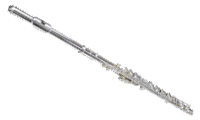
Flute
Along with the recorder, the history is old and plays a wide variety of tones from soft and relaxed song-like expressions to sharp and fast melodies.
Single reed
Attach the reed made with a hammer to the mouthpiece and make a sound.
-
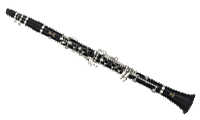
Clarinet
Held like a recorder and has a wide range of instruments.
It has a variety of impressions, from light and popping tones to deep echoing tones. -
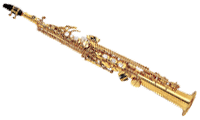
Saxophone
Speaking of jazz, many think of the saxophone. A wide variety of saxophones can be used to cover a wide range of sounds.
The larger the size of the soprano, alto, tenor, baritone and instruments, the lower the pitch. The ability to play various instruments with the same fingering is another attraction of saxophone.
~ Double reed~
It makes a sound by two overlapped reeds made of smashed straw.
-
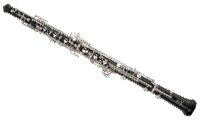
Oboe
When the orchestra performance starts, the first tuning sound you hear is the oboe sound. Mainly responsible for the melody in the high range.
-
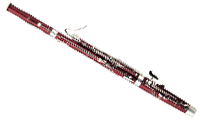
Bassoon
It is known to use a long, folded tube and all 10 fingers for playing. A wide range of responsibilities, from bass accompaniment to treble solos.













